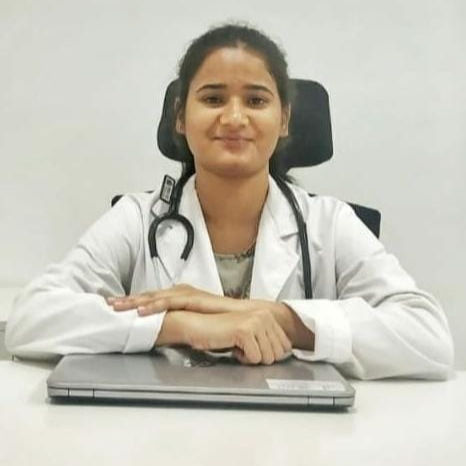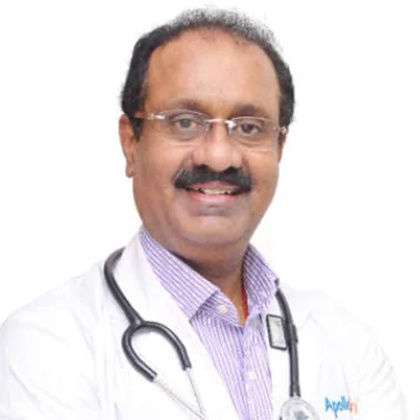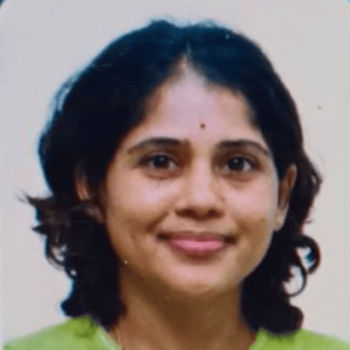Relevance
(15 doctors)

Dr. Ravikiran V
General Physician
3 Years • MBBS
Bengaluru
PRESTIGE SHANTHINIKETAN - SOCIETY CLINIC, Bengaluru
Dr Sumanth R
General Physician
2 Years • MBBS
Bengaluru
PRESTIGE SHANTHINIKETAN - SOCIETY CLINIC, Bengaluru

Dr. Pooja
General Physician
3 Years • MBBS
Bengaluru
PRESTIGE SHANTHINIKETAN - SOCIETY CLINIC, Bengaluru
Dr. Aleena Babu
Clinical Psychologist
5 Years • M.Sc Clinical Psychology
Bengaluru
Apollo Clinic, Sarjapur Road, Bengaluru

Dr. Suresh G
General Physician/ Internal Medicine Specialist
25 Years • MBBS, MD
Bangalore
Apollo Clinic Bellandur, Bangalore
(200+ Patients)

Dr. Anupriya C
General Physician/ Internal Medicine Specialist
5 Years • MBBS, MD, General Medicine
Bengaluru
Apollo Clinic, JP nagar, Bengaluru
Dr Kanchan Durugkar
Infertility Specialist
13 Years • MBBS, MS DNB OBGY IVF consultant
Pune
Apollo Clinic, Nigdi, Pune

Dr. N. Indhumathi
Genetic Counselors
13 Years • Ph.D (Genetics), PG Dip.in Psychological Counseling, Advanced PG Dip.in Genomics Data Science & Cloud Computing
Chennai
Apollo Hospitals Greams Road, Chennai

Ms. Kriti Menon
Genetic Counselors
7 Years • B.Tech (Genetic Engineering), PGDPC, BGCI Level II Certified Genetic Counselor
Delhi
Apollo Hospitals Indraprastha, Delhi
Dr. Kalpana Gowrishankar
Clinical Genetician And Counseling
25 Years • MBBS, DCH, PhD ( Genetics)
Chennai
Apollo Children Hospitals Greams Road, Chennai
(50+ Patients)
Clinical Genetics and Counselling
Booking an appointment with a genetic specialist or DNA counsellor online or by phone at Apollo 24|7 is a simple and convenient process. Our platform offers access to top genetic doctors and counsellors from trusted hospitals and clinics, ensuring you receive the best care for your genetic health concerns. With flexible appointment slots available, you can easily schedule a consultation that fits your schedule. Our experienced clinical geneticists and genetic counsellors will provide you with personalised guidance, helping you understand your genetic risks and make informed decisions about your health. Book your appointment today and take the first step towards managing your genetic health.
What is Clinical Genetics and Counselling?
Clinical genetics and counselling is a medical speciality focused on the diagnosis and management of hereditary disorders. This field combines the principles of genetics — the study of genes and their roles in inheritance — with counselling to support patients and their families. It plays a crucial role in healthcare by enabling early diagnosis and the management of genetic diseases, thus improving quality of life and guiding reproductive choices.
The speciality provides tailored preventive care options and helps in predicting the likelihood of a disease occurring or being passed onto future generations, making it indispensable in personalised medicine.
Who is a Clinical Geneticist and DNA Counsellor?
A clinical geneticist and DNA counsellor is a genetic specialist who is extensively trained to evaluate, diagnose, and manage patients with genetic disorders. This genetic doctor typically holds a medical degree followed by specialised training in genetics and counselling.
They possess deep expertise in interpreting genetic testing results and understanding the complexities of hereditary conditions. Clinical geneticists are adept at managing a wide array of genetic disorders and provide vital information and support to individuals and families navigating genetic health concerns.
Their role is critical in offering advice on disease management and prevention strategies, thereby playing a key role in healthcare.
What Does a Clinical Geneticist and DNA Counsellor Do?
A Clinical Geneticist and DNA Counsellor, often referred to as a genetic doctor, primarily focuses on diagnosing and managing genetic conditions. These genetic doctors are specialists who guide patients and their families through the complexities of genetic information. Here are their key responsibilities and typical daily activities:
Patient Assessment: They conduct thorough assessments, which involve taking detailed medical histories and a family history specialist’s approach to identifying potential genetic risks.
Genetic Testing: They decide when genetic testing is necessary and interpret the results to guide clinical decision-making.
Risk Analysis: They analyse genetic information to assess the risk of disease occurrence or transmission to future generations.
Counselling Services: They provide genetic counselling, offering support and information to help patients understand their conditions and make informed health choices.
Research and Development: Many clinical geneticists contribute to genetic research, helping to advance understanding and treatment options for genetic disorders.
Education and Collaboration: They also educate other healthcare professionals about genetics and collaborate with a multidisciplinary team to provide comprehensive patient care.
This specialist combines scientific knowledge with empathetic communication to deliver care that respects the needs and values of individuals dealing with genetic concerns. Their work is fundamental in the prevention, management, and education surrounding genetic diseases.
What are the Other Sub-specialities of Clinical Genetics and Counselling?
Clinical genetics and counselling encompass a range of sub-specialities, each focusing on different aspects of genetic medicine. Understanding these can help individuals seek the right expertise for their specific genetic concerns:
Cancer Genetics: This sub-speciality involves cancer geneticists who work to identify inherited cancer risks through genetic testing and family history analysis. They provide guidance on the management, surveillance, and preventive interventions for individuals at increased risk of cancer.
Prenatal and Reproductive Genetics: Specialists in this area offer genetic testing and counselling to couples planning to start a family or expecting a child. They help assess the risk of inherited conditions and chromosomal abnormalities in fetuses.
Cardiovascular Genetics: This sub-speciality focuses on genetic disorders that affect the heart and blood vessels. Experts identify genetic mutations that can lead to conditions like cardiomyopathies and arrhythmias, providing tailored prevention and treatment plans.
Neurogenetics: Neurogenetics deals with neurological conditions caused by genetic abnormalities. Specialists in this field diagnose and manage diseases such as Huntington’s disease, muscular dystrophy, and various types of hereditary neuropathies.
Pediatric Genetics: Pediatric geneticists diagnose and manage genetic disorders in children. They work closely with families to understand developmental delays, congenital anomalies, and hereditary disorders affecting children.
Metabolic Genetics: This sub-speciality focuses on genetic conditions that affect metabolism, such as phenylketonuria (PKU) and mitochondrial disorders. Specialists manage these through dietary interventions and other metabolic treatments.
Genetic Counselling for Rare Diseases: Genetic counsellors in this field assist patients and families dealing with rare genetic disorders. They provide information, support, and management strategies, helping to navigate the complexities of these conditions.
Pharmacogenomics: Pharmacogenomics combines genetics and pharmacology to understand how an individual's genetic makeup affects their response to drugs. This knowledge helps in tailoring drug treatments to each person’s genetic profile, enhancing efficacy and reducing side effects.
Each of these sub-specialities requires a deep understanding of both genetics and its practical application in clinical settings. By consulting the appropriate genetic specialist, individuals can receive the most informed and effective care for their specific genetic health needs.
What are the Clinical Genetics and Counselling Examinations or Tests Performed by the Clinical Geneticist and DNA Counsellor?
Clinical geneticists and DNA counsellors utilise a variety of diagnostic tests and examinations to assess genetic conditions and advise appropriate interventions. Here’s an overview of the most common ones:
Genetic Testing: This is the cornerstone of clinical genetics, involving the analysis of DNA, RNA, chromosomes, and proteins to detect abnormalities that might cause genetic disorders. These tests can confirm or rule out a suspected genetic condition or help determine a person's chance of developing or passing on a genetic disorder.
Family History Analysis: A detailed family history is taken to identify patterns or risks of inherited diseases. This assessment is critical as it can guide further testing and management strategies.
Prenatal Testing: Offered during pregnancy, this includes procedures like amniocentesis and chorionic villus sampling, which help identify genetic abnormalities in the fetus.
Newborn Screening: This routine test is performed shortly after birth to identify genetic disorders that can be treated early in life.
Predictive and Presymptomatic Testing: These tests are used to detect gene mutations associated with disorders that appear after birth, often before symptoms occur.
Pharmacogenomic Testing: This form of testing determines how an individual's genetic makeup will affect their response to certain medications, allowing for personalised treatment plans.
For those needing specialised genetic advice or facing genetic health concerns, it’s advisable to book clinical geneticist or book DNA counsellor. These professionals will guide you through the testing process, helping to clarify your genetic health and management strategies.
What are the Common Conditions & Diseases that Clinical Geneticists and DNA Counsellors Treat?
Clinical geneticists and DNA counsellors address a wide range of genetic conditions, focusing on diagnosis, management, and counselling. Here are the top 15 conditions they commonly treat:
Cystic Fibrosis: A hereditary disorder affecting the respiratory and digestive systems, characterized by thick, sticky mucus production.
Down Syndrome: A genetic chromosome 21 trisomy causing developmental and intellectual delays.
Sickle Cell Disease: A group of disorders that affect haemoglobin, the molecule in red blood cells that delivers oxygen to cells throughout the body.
Huntington’s Disease: A progressive brain disorder caused by a single defective gene on chromosome 4.
Haemophilia: A rare disorder in which your blood doesn't clot normally because it lacks sufficient blood-clotting proteins (clotting factors).
Duchenne Muscular Dystrophy: An inherited disorder of progressive muscular weakness, typically in boys.
Thalassemia: A blood disorder involving less than normal amounts of an oxygen-carrying protein.
Fragile X Syndrome: A genetic condition causing intellectual disability, behavioural and learning challenges.
Marfan Syndrome: A genetic disorder that affects the body’s connective tissue.
Turner Syndrome: A chromosomal disorder affecting females where one normal X chromosome is present in a female's cells and the other sex chromosome is missing or structurally altered.
Klinefelter Syndrome: A genetic condition affecting males that typically involves the presence of an extra X chromosome.
Rett Syndrome: A rare genetic neurological and developmental disorder that affects the way the brain develops.
Prader-Willi Syndrome: A complex genetic condition that affects many parts of the body.
Tay-Sachs Disease: A rare, inherited disorder that destroys nerve cells in the brain and spinal cord.
Wilson’s Disease: A rare inherited disorder that causes copper to accumulate in your liver, brain and other vital organs.
Each condition involves unique challenges, requiring specialised knowledge and skills from geneticists and counsellors to provide effective management and support.
Reasons to See a Clinical Geneticist and DNA Counsellor
Consulting a clinical geneticist and DNA counsellor is crucial when facing hereditary health concerns or symptoms suggesting a genetic condition. Primary reasons include:
Family History: If there’s a known genetic disorder or a pattern of illness in your family.
Diagnosis: To confirm or rule out genetic diseases if you or your child exhibit symptoms like developmental delays, abnormal growth patterns, or unusual physical features.
Reproductive Planning: To understand the risks of passing on genetic conditions to your children.
Management of Known Conditions: For ongoing support and management strategies if diagnosed with a genetic disorder.
If in-person visits are challenging, consider an online DNA counsellor consultation. This can be particularly valuable for initial assessments or follow-up discussions. For more in-depth analysis and testing, an online clinical geneticist consultation might be necessary, ensuring access to specialised care regardless of location.
What Types of Procedures do Clinical Geneticists and DNA Counsellors Perform?
Clinical geneticists and DNA counsellors are involved in various procedures that are crucial for diagnosing and managing genetic disorders. These procedures can be broadly classified into therapies and surgeries:
Top Therapies:
Genetic Counselling: Providing information and support to patients and their families regarding genetic disorders.
Pharmacogenomics: Tailoring drug therapy based on genetic makeup to optimise treatment efficacy and minimise side effects.
Prenatal Genetic Screening: Testing fetuses during pregnancy to identify genetic disorders like Down syndrome.
Newborn Screening: Conducting early tests on newborns to detect treatable genetic conditions before symptoms develop.
Predictive Testing: Testing asymptomatic individuals to predict risk of genetic diseases.
Preimplantation Genetic Diagnosis (PGD): Assessing embryos for genetic diseases before implantation during IVF.
Nutrigenomics: Studying the interaction of nutrition and genes to prevent disease.
Gene Therapy: Experimental techniques aiming to treat or prevent disease by modifying genes.
Top Surgeries:
Embryo Biopsy for PGD: Removing cells from embryos to test for genetic conditions.
Oocyte Retrieval for PGD: Extracting eggs from ovaries for genetic testing before in vitro fertilisation.
Somatic Gene Editing: Experimental surgery aimed at correcting defective genes responsible for disease development.
Cord Blood Banking: Collecting and storing umbilical cord blood for potential future therapeutic use.
Bone Marrow Transplant: Replacing damaged bone marrow with healthy cells, often used in genetic blood disorders.
Organ Transplants: Performing transplants in cases of organ failure due to genetic conditions.
Stem Cell Therapy: Using stem cells to repair or replace damaged tissues or organs due to genetic diseases.
Understanding these procedures is crucial, and consulting with a specialist can help manage expectations regarding outcomes and the clinical geneticist fee. For counselling sessions, understanding the DNA counsellor fee is also essential, as it helps in planning the financial aspects of genetic healthcare.
Why Choose an Apollo 24|7 Clinical Geneticist and DNA Counsellor?
Apollo 24|7 clinical geneticists and DNA counsellors are highly skilled and experienced professionals dedicated to providing exceptional care for patients with genetic conditions. Our team of genetic specialists includes board-certified medical geneticists and genetic counsellors who hold advanced degrees and have extensive expertise in diagnosing and managing a wide range of genetic disorders.
At Apollo 24|7, we offer personalised care plans tailored to each patient's unique needs, ensuring comprehensive and compassionate care throughout their healthcare journey. Our genetic doctors and DNA counsellors have access to state-of-the-art diagnostic tools and advanced treatment options, enabling them to provide the most up-to-date and effective care for their patients.
With seamless access to consultations, both online and in-clinic, Apollo 24|7 makes it convenient for patients to receive expert genetic care from the comfort of their homes or at one of our well-equipped facilities. Our team works closely with other specialists to ensure a multidisciplinary approach to patient care, addressing all aspects of their health and well-being.
What to Expect When Visiting a Clinical Geneticist and DNA Counsellor?
Visiting a clinical geneticist and DNA counsellor involves a comprehensive approach to understanding your genetic health. Here’s what you can expect during your visit:
Initial Consultation: The visit usually begins with a detailed discussion about your medical history and any genetic concerns in your family.
Family History Analysis: Expect to discuss your family health history in depth, as this information is crucial for assessing genetic risks.
Physical Examination: A thorough physical examination may be conducted to look for any visible signs that might suggest a genetic condition.
Genetic Testing: Based on the initial assessment, genetic testing may be recommended to confirm or rule out specific conditions.
Risk Assessment: The specialist will evaluate the risk of transmission of any genetic disorders to future generations.
Treatment Planning: If a genetic disorder is diagnosed, the clinical geneticist will develop a personalised treatment plan, which may include ongoing monitoring and coordination with other specialists.
For reassurance about the quality of care you can expect, it’s a good idea to read clinical geneticist reviews and DNA counsellor reviews. Additionally, if you're looking for specialists in your area, searching for a 'clinical geneticist near me' or 'DNA counsellor near me' can help locate nearby professionals.
How Can I Get an Appointment With a Clinical Geneticist and DNA Counsellor?
Booking an appointment with an Apollo 24|7 clinical geneticist and DNA counsellor is simple and convenient. Here's how you can schedule your consultation:
Online booking through the Apollo 24|7 website: Visit the Apollo 24|7 website and navigate to the "Book Appointment" section. Select "Clinical Genetics" from the list of specialities and choose your preferred geneticist or DNA counsellor. Select a convenient date and time for your consultation and provide the necessary personal and payment information to complete your booking.
Online booking through the Apollo 24|7 app: Download the Apollo 24|7 app on your smartphone or tablet. Log in or create an account, then select "Book Appointment" from the main menu. Follow the same steps as outlined for website booking, choosing "Clinical Genetics" as your speciality and selecting your preferred provider, date, and time.
Offline booking: You can also book an appointment by calling the Apollo 24|7 helpline or visiting your nearest Apollo clinic or hospital. Provide the necessary information to the customer service representative, who will assist you in scheduling your consultation with a clinical geneticist and DNA counsellor.
Referrals: If your primary care physician or another specialist believes you would benefit from seeing a geneticist, they can refer you to an Apollo 24|7 clinical geneticist and DNA counsellor. In this case, your referring doctor will provide you with the necessary information and assist in coordinating your appointment.
FAQs
What is medical genetic counselling?
Medical genetic counselling provides guidance and information to individuals or families about genetic conditions. It involves assessing genetic risks, interpreting test results, and helping clients understand their health options and the potential impact of genetic disorders on their family.
What is the difference between genetic testing and counselling?
Genetic testing involves analysing DNA to identify genetic abnormalities, whereas genetic counselling interprets test results, assesses risk factors, and provides emotional and decision-making support. Counselling aims to help clients understand and adapt to the medical, psychological, and familial implications of genetic contributions to disease.
What is the role of genetic counselling?
The role of genetic counselling is to support individuals in understanding their genetic health, explaining the implications of genetic tests, assessing the risk of inherited conditions, and assisting in decision-making related to family planning and healthcare strategies. It aims to provide comprehensive information and emotional support.
Who needs genetic counselling?
Genetic counselling is recommended for individuals with a family history of genetic disorders, those who have or are at risk of a genetic condition, couples planning to start a family, and anyone considering genetic testing to understand potential health risks.
What is a genetics doctor called?
A genetics doctor is commonly referred to as a clinical geneticist. These specialists are trained in diagnosing and treating genetic disorders, providing genetic counselling, and interpreting genetic tests to guide patient care.
Is genetic counselling good?
Genetic counselling is beneficial as it helps individuals understand their genetic health, make informed medical and lifestyle decisions, and manage anxiety about potential health risks. It supports patients in navigating complex genetic information and planning future healthcare.
What are the risks of genetic counselling?
The risks of genetic counselling are primarily emotional, including anxiety, distress, or guilt about potential genetic conditions affecting oneself or family members. However, these risks are mitigated through supportive counselling and clear communication.
Who is eligible for genetic counselling?
Anyone at risk of inherited diseases, those undergoing genetic testing, families with genetic disorders, pregnant couples concerned about genetic abnormalities, and individuals seeking personalised risk assessments and management plans are eligible for genetic counselling.
Is genetic counselling necessary?
Genetic counselling is necessary for those who need assistance in understanding the implications of genetic testing, have a family history of genetic conditions, or require support in making informed healthcare decisions based on their genetic background.
How long does genetic counselling take?
Genetic counselling sessions typically last from 30 minutes to an hour. The duration can vary based on the complexity of the genetic information, the number of tests being discussed, and the patient's needs for support and information.